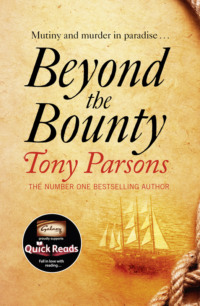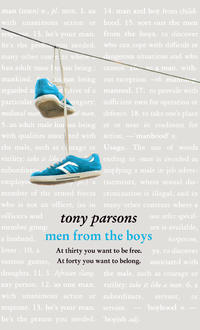
Полная версия
My Favourite Wife
They had married young, both of them twenty-four, the first of their little group to settle down. They had never regretted it.
Becca had watched their single friends optimistically hooking up with someone they had just met in a bar, or a club, or a gym, only to grow unhappy, or bored, or trapped, or get their heart kicked around, and she was glad to say good riddance to all of that.
Marriage had seemed natural to them. They talked about it. If you find the right person, and you are both sure, then you can’t be too young, can you? And even at twenty-four both of them had felt too old for the sad dance of the gym and the bar and the club.
Some things they didn’t need to talk about. They had always taken it for granted that they would both work, and this didn’t change when Holly was born just after their third anniversary. Because it couldn’t change. Bill was a corporate lawyer at a firm in the City, Becca a financial journalist at a newspaper in Canary Wharf, and the mortgage payments on their little house in one of the leafier corners of North London demanded that they both keep earning. Every morning Bill would take Holly to nursery, and every afternoon Becca would pick her up.
And then one day everything changed.
Holly had just turned three and she had been at her nursery for a few hours when suddenly she was struggling to breathe. ‘Just a cold,’ said one of the carers, even when the child began to sob with terror and frustration. ‘Just a very bad cold.’
By the time Becca came to collect her, Holly was ready to be rushed to the nearest Accident and Emergency. By the time Bill arrived at the hospital, the doctor had diagnosed asthma. Holly never went back to the nursery and Becca never went back to her newspaper.
‘No stranger will ever look after her the way I will,’ Becca said, choking back tears of rage, and he soothed her, and he understood, and he told her that of course she was right, and nothing was more important than Holly.
Holly’s asthma was controlled with the help of a paediatrician in Great Ormond Street, who prescribed chewable tablets that she quite enjoyed and the breathing machine. She was brave and good-natured, never complaining, and Becca and Bill tried not to ask the question posed by every parent of a sick child – Why her? There were children far worse off than Holly. They saw them every time they came to Great Ormond Street.
But while Holly slept at night, sometimes making that strange sound at the back of her throat that they now recognised as a symptom of the asthma, Bill and Becca got out the calculators, applied for online overdrafts, thought about remortgaging, and wondered how long they could stay in their home.
They talked about moving to a cheaper, bleaker neighbourhood a few miles east. They talked about staying in the neighbourhood but selling their home and renting for a while. They talked about moving out to the suburbs. And everything they talked about depressed them.
Holly was well, and of course that was the main thing, but suddenly they were struggling just to get by. They loved their house. That was a problem. And they needed their house. That was another problem. Sometimes the senior partners at the firm invited them to dinner in their magnificent homes, these smooth-skinned old millionaires with their charming, hawk-eyed wives, and when you invited them back, you wanted them to come to a neighbourhood where they wouldn’t necessarily get mugged at knife-point for the bottle of Margaux they were carrying.
‘One of your senior partners had his wife’s fiftieth birthday party at the Sandy Lane,’ Becca said. ‘When they come over to our place, we can’t open a six-pack in a bedsit.’
‘We’ll never have to open a six-pack in a bedsit,’ Bill said, a note of resentment in his voice.
She put her arms around his neck. ‘You know what I mean, darling,’ she said.
He knew what she meant.
Some of the firm’s younger lawyers were already in big flats or small houses in Notting Hill and Kensington and Islington, bankrolled by indulgent parents who stayed together, or guilty parents who didn’t. Bill and Becca were doing it on their own. Nobody was giving them a thing.
Then suddenly there was a way to end all their money worries. Your life can change in a moment, Becca realised. You go through the years thinking you know what the future looks like and then one day it looks like something else.
Becca sat next to a man at the annual dinner of Bill’s firm, and nothing was ever the same again.
Every January, Hunt, Butterfield and West rented one of those big soulless hangars in a posh Park Lane hotel and personnel from the firm’s offices all over the world flew in to celebrate the anniversary of Robbie Burns’ birth. Five hundred lawyers in black tie, or kilt, and their wives – or, more rarely, their husbands.
Bill found himself sitting between the wives of two senior partners from New York, who knew each other and were happily talking across him. Becca was at the next table and she smiled as he rolled his eyes and mouthed three little words – Kill me now. Then she looked up as two men sat down either side of her. The men from Shanghai.
One of them was a big blond Australian in a kilt – Shane Gale, he said. He looked like he had been a surfer ten, fifteen years ago. Head of Litigation in Shanghai, he said. Shane was suffering from the effects of the champagne reception, but the way he avoided eye contact made Becca think that perhaps his real problem was not drunkenness but shyness.
The man on the other side was a tall, thin Englishman called Hugh Devlin, senior partner of the Shanghai office. It was funny the way their job titles tripped off their tongues as naturally as their names, she thought, fighting back the urge to say Becca Holden – housewife, homemaker and former financial hack.
While Shane silently buried his face in the Burgundy and started to get seriously rat-faced, Devlin took the table in hand.
She smiled across at Bill, her handsome young husband in his tuxedo, the American wives still talking across him, and Devlin smiled at him too. He had heard such good things about Bill, he said. Nothing but good things. A real grafter, said Devlin. Billed more hours than anyone in the London office two years in a row. Devoted to his family.
‘Yes,’ Becca said. ‘That’s my man.’
But, Devlin wanted to know, what’s your husband doing wasting his time in London? If he’s truly ambitious, then why doesn’t he come and try his luck in the fastest-growing economy on the planet? It was New York in the twentieth century and London in the nineteenth. And now it’s Shanghai, Devlin said. If you can make it there…
He saw the doubt on her face. A move to the Third World? London was rough enough for her. I mean it, he said. I’m serious. Lower taxes, higher salary. He’ll make partner out there a lot faster than he will here. And then he had her attention. A partner – it was what the young lawyers – and their wives – dreamed of. To escape the salaried life, and share the firm’s profits. When you made partner you were no longer working for the firm. You were the firm.
Devlin was talking about a life of colonial splendour that Becca had imagined went out years ago. You would have a home with a maid and a cook and a nanny and a driver – these things were cheap over there. These things were normal. And it was almost as if Devlin sensed something that she had tried to keep buried, even from Bill – that their life in London had let her down, that she was bitterly disappointed with their lot, that her little family had to struggle when they deserved so much more…
But – they couldn’t really do it, could they? Surely Shanghai was a place for a single man, Becca suggested. A man with no family ties?
No, said Devlin, not at all – Shanghai was actually a perfect posting for a man with a family. A man with stability, ambition, loved ones to work for. Shanghai had too many distractions for the single man, he said. Too many distractions. Later they would all become experts on the distractions of Shanghai.
Devlin was a family man himself – and he showed Becca a wallet photograph of a beautiful middle-aged woman and three smiling boys. Devlin said he liked his staff to have families. It meant they had a stake in the future.
Becca turned to Shane, who had been listening to some of this with a lopsided grin, and asked him how his own wife liked Shanghai. But Shane said that he wasn’t married, and they all laughed.
The pipers came into the room. They were playing ‘Flower of Scotland’. And when the dinner started to break up, and Bill came over to their table, Becca could almost hear the invitation from Devlin to have breakfast, to talk about the future, all the coy small talk of the headhunter.
But as Bill took his wife’s hand, happy and relieved to be back by her side, the man from Shanghai surprised both of them.
‘I like it that you’re married,’ he told Bill.
Becca picked up Holly from the school at twelve sharp. She could have stayed until three, but Becca was afraid that her daughter might miss her.
‘She’s been fine, didn’t miss Mummy at all,’ the Australian teacher said, giving Becca a shrewd look that said, Who’s doing the missing around here?
The pair of them held hands as they walked back through the peaceful streets of Gubei to the flat and, as Holly played with her Disney princess figures, Becca made a start on the unpacking.
‘Where did Daddy went?’ Holly asked.
‘Where did Daddy go,’ Becca said.
‘That’s just what I was wondered,’ Holly said, stunned at this amazing coincidence.
Becca pulled open a case. Suits. Dark blue suits for the hot young lawyer. ‘Your daddy’s at work, darling.’
Holly banged Prince Charming’s plastic head against the palm of her hand. ‘I need to talk to him.’
‘You can talk to him later,’ Becca said, but she wondered if Bill would get home from work before their daughter went to bed. She knew he would try his best. She also knew it was unlikely.
When Becca stopped for a cup of English breakfast tea, she went to the window but the courtyard was empty. There was no sign of the young women they had seen on Saturday night.
It was only early afternoon and the girls of Paradise Mansions were still sleeping.
THREE
The firm occupied three floors in a Pudong skyscraper so new that he could still smell the paint. Bill sat with his back to the window. Behind him the financial district stretched off into the summer mist.
There were spiked Tolkien towers constructed from steel and gold and black glass, one of them built to look like a hundred-storey pagoda, another with a screen covering an entire side of the building where a smiling beauty advertised a phone network. Looming above it all like the true masters of the landscape were the giant cranes.
On Bill’s desk there were neat stacks of draft contracts and a silver-framed photograph of his family – Bill and Becca and Holly standing in the surf on a beach in the Caribbean, Bill holding the then two-year-old Holly in his arms, Becca looking jaw-droppingly gorgeous in some kind of orange shift thing, the three of them wearing slightly shy grins as they gazed at the kind passing stranger who was taking the picture. It was the holiday they took before Becca gave up work and the money got tight. When his eyes drifted to the photograph in the course of his working day, Bill always found himself smiling.
He was going through the transactional documents of a new property development on the outskirts of the city. It was called Green Acres. When completed, it would be a gated community for the new rich of Shanghai. Butterfield, Hunt and West were representing the project’s German investors, DeutscherMonde. Bill had already noticed that the firm were doing a lot of work for DeutscherMonde. He looked up as Shane appeared in the doorway.
‘These Germans,’ Bill said. ‘Do they have a fixed cap?’
Shane shook his head and Bill looked suitably impressed. Clients often pressed law firms for a fixed cap on fees for any deal, knowing that if they were billed by the hour then the legal fees were potentially limitless.
‘Sky’s the limit,’ Shane said. ‘Limit’s the sky. That’s why they’re so important.’ The big Australian came into the room and leafed through some papers on Bill’s desk. ‘This place is going to be beautiful, mate. One hundred millionaires in one square mile. Gardens based on Versailles. Pools, saunas, panic rooms – all based on the actual pools, saunas and panic rooms that they had at Versailles. Twenty-four-hour armed security for the blokes who only just got used to using inside toilets. Lovely jubbly.’
Bill leaned back in his chair. He had building plans in one hand and a map of the area in the other. The development was being built in a place where right now there were only fields and a small village.
‘It looks like it’s being built on farmland,’ he said, handing Shane the map.
‘That’s right. The village is called Yangdong. They’ve been pig farmers for generations.’
Bill thumbed through the file. ‘So who owns the land?’
Shane put the map back on Bill’s desk. ‘The People,’ he said.
Bill looked at the map and up at Shane. ‘So the people of this village – the farmers – they own it?’
‘Not the farmers,’ Shane said. ‘The People. In China, all farmland is owned collectively. Each family in the village has a long-term lease on its holding. Our clients are buying the land from the local government.’
‘What happens to the farmers?’ Bill said.
‘They get a compensation package,’ Shane said, ‘and get to say so long and fare-thee-well to their pigs. Our clients build their two-million-US houses for people rich enough to afford them -and there are plenty of those. These places were all sold off the drawing board. And in a year there will be palaces where there used to be pig farms. And everybody will be happy.’
A man with fair, thinning hair appeared in the doorway. He was maybe ten years older than Bill, in his early forties. Bill had noticed him around the office because he seemed older than everyone else.
‘Shane?’ the man said. There was the north of England in his accent. ‘Mr Devlin is looking for you.’
‘Thanks, Mitch,’ Shane said. ‘I’m right there, mate.’ Shane made no attempt to introduce the man to Bill, so the pair of them smiled awkwardly at each other for a moment, and then the man was gone.
‘Who’s that?’ Bill said.
‘Pete Mitchell,’ Shane said. ‘Mad Mitch, we call him.’
‘What’s mad about him?’ Bill said. It would be hard to imagine a more quiet, self-effacing soul.
Shane glanced at the empty doorway. ‘He’s the wrong side of forty and he never made partner. Wouldn’t you be mad?’
Bill frowned. ‘Doesn’t the firm’s up-or-out policy apply here?’
An up-or-out policy was a law firm’s way of staying lean and hungry, a money-making machine that carried no deadwood. If you lacked the stuff needed to make partner, then you were finished. The firm would not carry you to retirement. You moved up – or out.
‘Sure,’ Shane said. ‘Most – I guess, oh, eighty-five per cent – of our associate lawyers make partner. The ones that don’t are like a girl that gets left on the shelf. You know, the Bridget Jones lawyers – like an unmarried bird facing the change without her Hugh Grant.’
Bill shivered as though someone had stepped on his grave. ‘Then what’s he doing here?’ he said. ‘Mad Mitch, I mean.’
‘Mad Mitch was in the Hong Kong office but he couldn’t stand the pace after the hand-over. For years the Hong Kong boys made money hand over fist, but it got a lot tougher when the Brits shipped out. Mitch was posted out here back when Shanghai was still a soft option.’ Shane sighed. ‘Sad, innit, mate? Forty-odd years old and still a wage slave. And we can’t go on forever, can we? Not the way we work. Lawyer years are like dog years – they run that bit faster than human years.’ Shane picked up the photograph on Bill’s desk. ‘But great things are expected of you,’ he said, nodding gravely. He studied the little family for a while and then gently replaced the photograph.
‘You’re a lucky man, Bill.’
‘Yes,’ Bill said, straightening the silver frame. ‘I am.’
The Mercedes came out of the tunnel and on to the Bund.
The famous road curved off ahead of them, a great sweep of stout colonial buildings made of marble and granite, the architecture of Empire.
‘The West is finished,’ Devlin said, watching the Bund go by. ‘The future belongs to the Chinese. They own it already.’ He turned to look at Bill. ‘Do you believe that?’
Bill smiled, shrugged, not wanting to disagree with his boss, but reluctant to concede the future to anyone. ‘I don’t know,’ he said.
‘Believe it,’ Devlin told him. ‘They work harder than we do. They put up with conditions that would make us call a human rights lawyer, or the cops. They make us – the West, the developed world, all the twenty-first-century people – look lazy, soft, the pampered men of yesterday. We haven’t seen anything yet, I promise you.’
There were four of them in the car, with Tiger at the wheel. He had taken off his toy soldier uniform and was wearing a business suit. Bill sat in the back seat wedged between Devlin and a lawyer called Nancy Deng, one of the firm’s Chinese nationals. She had her briefcase open on her lap, examining some files, and she hadn’t spoken since the journey began.
Shane sat up front, his wafer-thin mobile phone in his big meaty fist, talking in calm, fluent Chinese. The words didn’t have the barking sound of Cantonese, or the rural, West Country burr of Mandarin, and so Bill guessed this must be what Shanghainese sounded like.
‘What happens when the Chinese can make everything the West makes?’ Devlin said, smiling back at Bill. ‘Not just toys, clothes and dinky little Christmas decorations but computers, cars, telecommunications – when they can make all that stuff at one tenth of the cost it takes our fat lazy work force?’
‘You want to pick up our Germans or meet them at the restaurant?’ Shane said over his shoulder.
‘We’ll pick them up at their hotel,’ Devlin said. ‘I don’t want our Germans getting lost.’ He looked back at Bill. ‘The Chinese are united,’ Devlin said, his eyes shining. ‘That’s the thing that nobody gets. They’re united. They have a unity of national vision that the West has lacked since, oh, World War Two. That’s why they will win.’
Shane was telling the Germans that he would see them in the lobby in ten minutes.
‘I love the Chinese,’ Devlin said simply, leaning back. ‘I admire them. They believe that tomorrow will be a better day. And if you are going to believe in something, anything, then that’s not a bad thing to believe in.’
Bill watched the Bund go by, and silently agreed with him.
The beggars saw them coming.
At first it seemed to Bill as though every single one of them had an oversized baby in her arms, as though begging without a toddler was forbidden by some local statute, but then he realised that there were also old people shambling along at the back of the mob, filthy hands outstretched, and solitary feral children who ducked and dived beneath the women with their toddlers in their arms, the toddlers carried as if they were babies.
But Bill had not noticed the old people and the big children. He had only noticed the toddlers being carted under the arms of their mothers.
Because they all seemed to be just a little bit younger than Holly.
Shane cursed. He had not wanted to walk to the restaurant. He had advised the two Germans that it was better to take the Mercedes and a cab, but they had insisted. They wanted to stroll along on the Bund, and now look what had happened. The beggars were on them, all over them, with their toothless, ingratiating smiles, the rank smell of their clothes and their bodies, all the bewildered faces of the children carried under one arm.
Shane shoved on ahead, shouting at them in Shanghainese, while Nancy pleaded with them and Devlin gave instructions to the clearly terrified Germans. Only Bill dawdled, stunned by a world where children the same age as Holly were begging in the street.
He reached for his wallet, and immediately realised his mistake. He had planned to give some money to the women with children but there were just so many of them, too many of them, and suddenly he was overwhelmed, the coins and notes falling from his fingers and the women with toddlers being trampled by the older children. Empty palms were thrust in Bill’s face.
One of the bigger kids – a weasel-faced runt with a cropped head and the eyes of an old man – grabbed Bill’s jacket and wouldn’t let it go. The child clung on as Bill edged his way through the mob to the building where his colleagues and the Germans were waiting. A uniformed doorman prised the child from Bill’s jacket.
‘Better watch your wad around here, mate,’ Shane said. ‘They’re not all driving BMWs and shopping at Cartier. There are still millions of the little bastards wiping their arses with their hands.’
‘And nobody gets left behind in the West?’ Devlin flared. Then he smiled easily. ‘There’s more upward mobility here than anywhere on the planet.’
Bill was embarrassed, shaken. The Germans were staring at him. One of them was balding and in a business suit, and the other had the long greying hair and the leather jacket of a wild youth. But they were both all business, and they could have been brothers. They murmured to each other in their own language.
Bill wiped sweat from his face. As they went up to the restaurant in the lift, Nancy gave him a tissue for the smear of grime that the young beggar had left on his jacket. He thanked her, his face burning, and dabbed at the mark but saw that it would not budge.
The perfect black print of a child’s hand.
Bill didn’t understand.
Their clients, DeutscherMonde, were investing billions of RMB in the Yangdong project. The company had already built an identical development in the suburbs of Beijing. And yet, as the Germans sat with their expensive lawyers across the dinner table from the local government officials of Yangdong – five men with cheap suits and soft flesh and bad teeth, accompanied by their own lawyer, a bird-thin man of sixty with a shock of dyed black hair, and a slab-like stooge who looked like some kind of bodyguard – it was as if the Germans were the supplicants, the ones most desperate for the deal, the beggars at the feast.
Courses came and went. The Germans sipped their mineral water. The Chinese chain-smoked high-tar cigarettes and swilled soft drinks. The conversation ebbed and flowed from English to Shanghainese, much of it concentrating on the glory of the Green Acres development, and how it would enrich the community.
The oldest of the town’s representatives said the least. With his hooded eyes, long upper lip and frog face, Bill thought he looked like a mini Mao. They called him Chairman Sun. He smoked constantly, even when the chopsticks in his spare hand picked at a dish. Sun made no eye contact, yet still managed to convey the impression that he was mildly dissatisfied with everything, including the project, the food, the choice of restaurant, the presence of so many foreign devils, and possibly life itself.
Only Bill had turned off his phone, and tinny snatches of familiar tunes punctuated the lunch. The Mission Impossible theme, the opening chords of ‘Brown Sugar’, niggling soundbites from Beethoven and Oasis and Faye Wong. Shane pushed his plate to one side and placed his laptop on the table.
‘What do you keep on that thing?’ Bill asked him.
‘The truth, mate,’ Shane told him. ‘The brutal truth.’
Chairman Sun called for the waiter and gave him his instructions. The waiter went away and came back with the wine list. Sun chose a bottle and Shane ingratiatingly smiled and mumbled his compliments in Shanghainese at the excellence of the choice.









